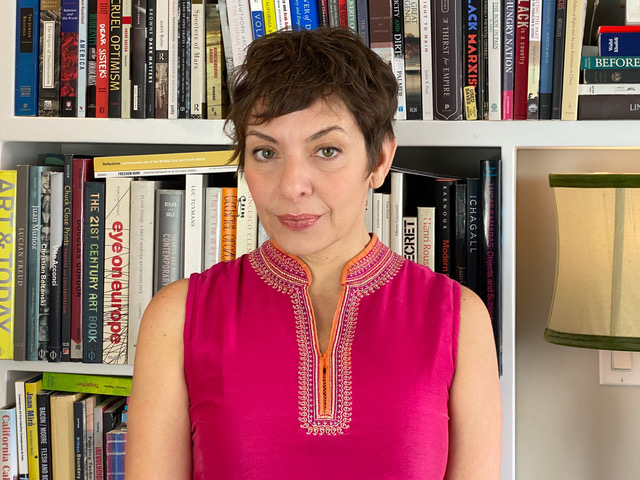Call for Proposals: Faculty Spotlight Exhibitions at the IAS
May 29, 2025UC Santa Cruz faculty across the divisions are invited to submit a proposal for an exhibition of their artwork at the Institute...
The IAS will be closed December 22, 2025 - January 6, 2026


January 18, 2024 @ 7:00 pm – 8:30 pm
How do we understand conflicting claims to land and its relationship to colonialism outside of constricted paradigms of exceptionalism and the structures of the nation-state? What can be learned about the global history of race, capital, slavery, and dispossession through critical analysis of the historical and present struggles in Palestine? At this event, author and scholar Sherene Seikaly, in conversation with Gina Dent, will contextualize Palestinian liberation struggles in relation to the movement for abolition. While prison abolition is often construed as a movement defined by the United States prison industrial complex, this talk will address central topics in the Palestinian struggle and illuminate its foundational role in thinking about liberation on a global scale.
This event is free and open to the public but space is limited. Registration is now full.
Sherene Seikaly is Associate Professor of History at the University of California, Santa Barbara. Her book Men of Capital: Scarcity and Economy in Mandate Palestine (Stanford University Press, 2016) explores economy, territory, the home, and the body. Her forthcoming book, From Baltimore to Beirut: On the Question of Palestine tells a global history of capital, slavery, and dispossession. She is the Director of the Center for Middle Eastern Studies at UCSB, co-editor of the Stanford Studies Middle Eastern and Islamic Societies and Cultures Series, co-editor of Journal of Palestine Studies, and co-editor of Jadaliyya.
Gina Dent is Humanities Associate Dean of DEI and Professor of Feminist Studies, History of Consciousness, and Legal Studies at the University of California, Santa Cruz. She is PI and Co-Director for the Mellon Foundation-funded Visualizing Abolition, a project designed to redirect social resources away from prisons by accessing the power of the arts.